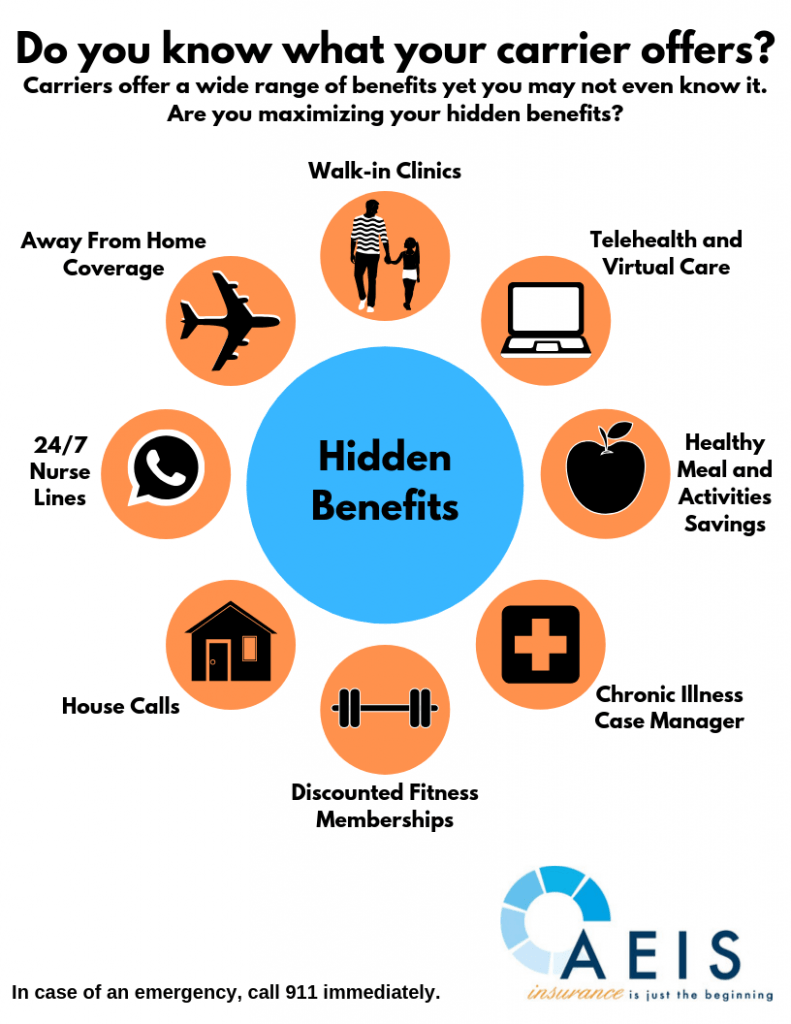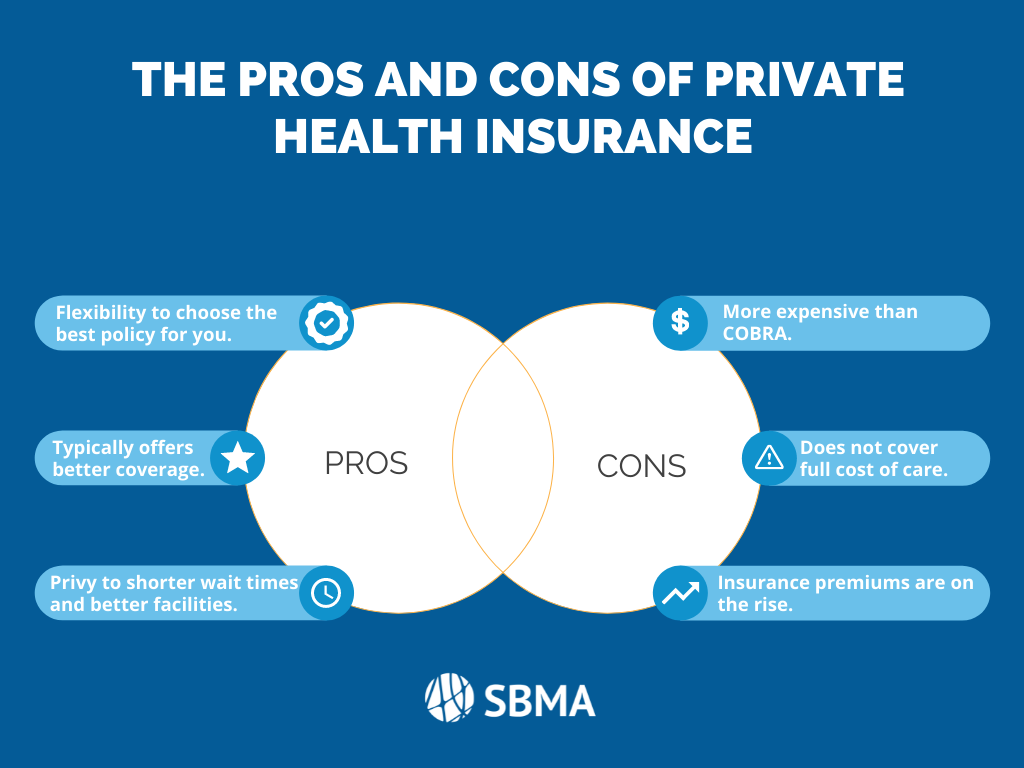The Facts About Medicare Advantage Agent Uncovered

The government pays greater than it ought to for these strategies, while the involved firms make a bigger earnings. This video game includes firms paying physicians to report more health and wellness problems, sharing the additional money with medical professionals, and even having the doctor's workplaces. Getting ill can be expensive. Even small health problems and injuries can cost hundreds of dollars to identify and deal with.
Major health problems can set you back lot of times that. Healthcare coverage assists you obtain the treatment you need and secures you and your family financially if you get ill or injured. You can obtain it via: Your work or your partner's work, if the company supplies it. You must meet eligibility demands for government healthcare programs. For even more information regarding government programs, browse through Benefits.gov. Find out more: Medical insurance: 5 things you may not recognize See: Are you suddenly needing medical insurance? You can add your family to a work health strategy. If you acquire from an insurance provider or the marketplace, you can buy
a strategy that additionally covers your household. They don't have to live at home, be registered in school, or be claimed as a based on your income tax return. You can maintain married children on your strategy, yet you can't add their spouses or children to it. If you have dependent grandchildren, you can maintain them on your plan until they transform 25. You can purchase various other times only if you shed your insurance coverage or have a life modification. Life modifications include points like marrying or
separated, having an infant, or embracing a kid. You can enroll in a job health insurance when you're first worked with or have a significant life change. They can not reject you coverage or cost you a lot more as a result of a preexisting problem or impairment. The cost depends on your circumstances. You'll need to pay costs and component of the price of your treatment. A premium is a month-to-month fee you pay to have coverage. To determine your premium, insurer will take into consideration: Your age. Whether you smoke or use tobacco. Whether the protection is for one person or a household. They may rule out your sex or health variables, including your medical background or whether you have an impairment. Costs for specific strategies are secured for one year. Rates generally go up when the plan is restored to reflect your age and greater healthcare costs. All health insurance need you to.
pay several of the cost of your health and wellness treatment. This is called cost-sharing. In addition to premiums, you generally must satisfy an insurance deductible and pay copayments and coinsurance. A is the amount you should pay prior to your strategy will pay. For example, if your deductible is$ 1,000, your strategy will not pay anything until you've paid $1,000 on your own.
You'll additionally have a copayment if you most likely to the emergency room or see a specialist. The quantities differ by plan. is an amount you spend for a covered service after you have actually fulfilled your deductible. It's typically a percentage of the price of the service. For instance, your health insurance plan might pay 80 % of the price of a surgical treatment or health center keep.
The percent you pay in coinsurance varies by strategy. You normally don't need to pay coinsurance in an HMO. Federal law establishes limits on the amount you pay out of pocket in a plan year. Some plans have lower out-of-pocket restrictions. After you reach the limit, you don't need to pay copayments or coinsurance for the remainder of the strategy year.
Getting The Medicare Advantage Agent To Work

The 4 kinds are: HMO plans. Unique supplier (EPO) plans. Preferred company (PPO) strategies. Point-of-service strategies. All 4 types are handled treatment plans. This implies they agreement with medical professionals and other health and wellness treatment carriers to treat their members at reduced rates. These providers make up a plan's network. Handled treatment strategies restrict your selection of doctors or encourage you to utilize physicians in their networks.
The plans differ in the extent to which you can make use of medical professionals outside the network and whether you have to have a medical professional to manage your care. You must make use of providers in the HMO's network. If you don't, you could need to pay the full cost of your treatment yourself. There are exemptions for emergencies and if you need treatment that isn't offered in the network. Medicare Advantage Agent.
You'll additionally have a copayment if you go to the emergency clinic or see a specialist. The quantities vary by strategy. is an amount you spend for a covered solution after you've met your insurance deductible. It's typically a percentage of the price of the solution. For instance, your wellness plan could pay 80 % of the cost of a surgical look what i found treatment or healthcare facility stay.
Medicare Advantage Agent - Truths
The percentage you pay in coinsurance varies by plan. You normally do not need to pay coinsurance in an HMO. Federal regulation establishes limits on the amount you pay out of pocket in a plan year. Some plans have lower out-of-pocket limitations. After you get to the restriction, you do not need to pay copayments or coinsurance for the remainder of the strategy year.
A strategy year is the 12-month period from the day your coverage started. For instance, if your coverage started on September 1, your strategy year lasts until August 31. Find out more: How to save cash at the medical professionalTreatment choices and expenses There are 4 sorts of major medical health insurance plan in Texas.
Unique supplier (EPO) plans. All 4 types are taken care of care plans. Handled care plans restrict your option of physicians or motivate you to use medical professionals in their networks.
The plans vary in the degree to which you can make use of physicians outside the network and whether you should have a doctor to supervise your treatment. You should make use of suppliers in the HMO's network. If you don't, you could have to pay the full price of your care yourself. There are exemptions for emergencies and if you require treatment that isn't offered in the network.
Some Known Incorrect Statements About Medicare Advantage Agent
You'll additionally have a copayment if you most likely to the emergency clinic or see a professional. The quantities differ by strategy. is a quantity you spend for a protected solution after you have actually fulfilled your insurance deductible. It's typically a portion of the cost of the service. As an example, your health insurance might pay 80 % of the cost of a surgical treatment or hospital stay.

The percent you pay in coinsurance varies by strategy. You normally don't need to pay coinsurance in an HMO. Federal legislation sets restrictions on the amount you pay of pocket in a plan year. Some plans have reduced out-of-pocket limits. After you get to the limit, you do not have to pay copayments or coinsurance for the remainder of the plan year.
A strategy year is the 12-month period from the date your insurance coverage started. There are four kinds of major clinical health plans in Texas.
Special copyright (EPO) plans. All four kinds are managed care strategies. Managed useful content treatment strategies limit your option of physicians or motivate you to make use of medical professionals in their networks.
Some Known Details About Medicare Advantage Agent
The plans vary in the level to which you can utilize medical professionals outside the network and whether you have to have a medical professional to supervise your care. If you do not, you might have to pay the complete cost of your care on your own.
You'll likewise have a copayment if you go to the emergency situation room or see an expert. The amounts vary by plan. is an amount you pay for a protected service after you have actually met your deductible. It's typically a percentage of the expense of the solution. Your health and wellness strategy could pay 80 % of the expense of check that a surgical procedure or medical facility remain.
The percent you pay in coinsurance differs by plan. You typically do not need to pay coinsurance in an HMO. Federal regulation sets limits on the amount you pay out of pocket in a strategy year. Some strategies have reduced out-of-pocket limits. After you reach the limitation, you do not have to pay copayments or coinsurance for the remainder of the plan year.
A strategy year is the 12-month duration from the date your protection started. There are four types of significant medical health and wellness plans in Texas.
Not known Factual Statements About Medicare Advantage Agent
The four types are: HMO strategies. Special company (EPO) plans. Preferred copyright (PPO) strategies. Point-of-service plans. All 4 types are managed treatment plans. This means they agreement with physicians and other health treatment carriers to treat their members at discounted prices. These service providers make up a strategy's network. Handled treatment plans restrict your choice of medical professionals or motivate you to use medical professionals in their networks.
The plans differ in the degree to which you can make use of doctors outside the network and whether you must have a physician to oversee your care. If you do not, you could have to pay the complete cost of your treatment on your own.
Comments on “The Ultimate Guide To Medicare Advantage Agent”